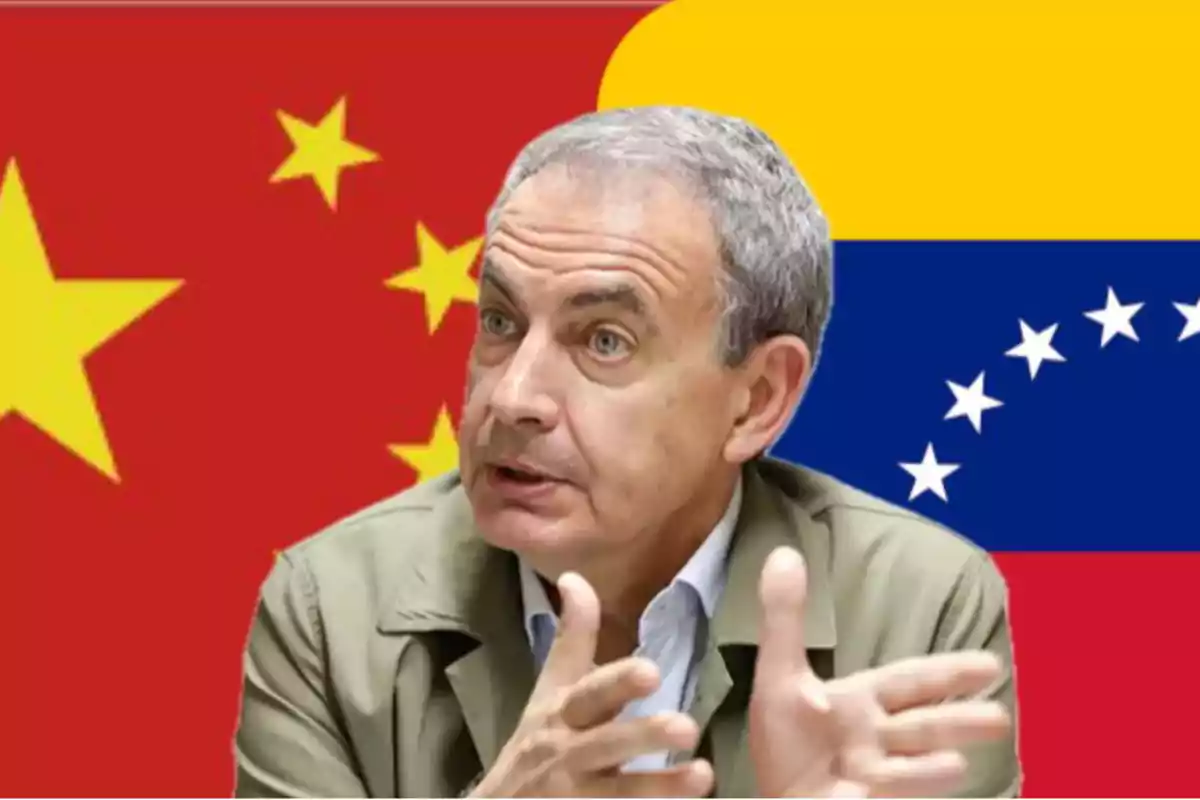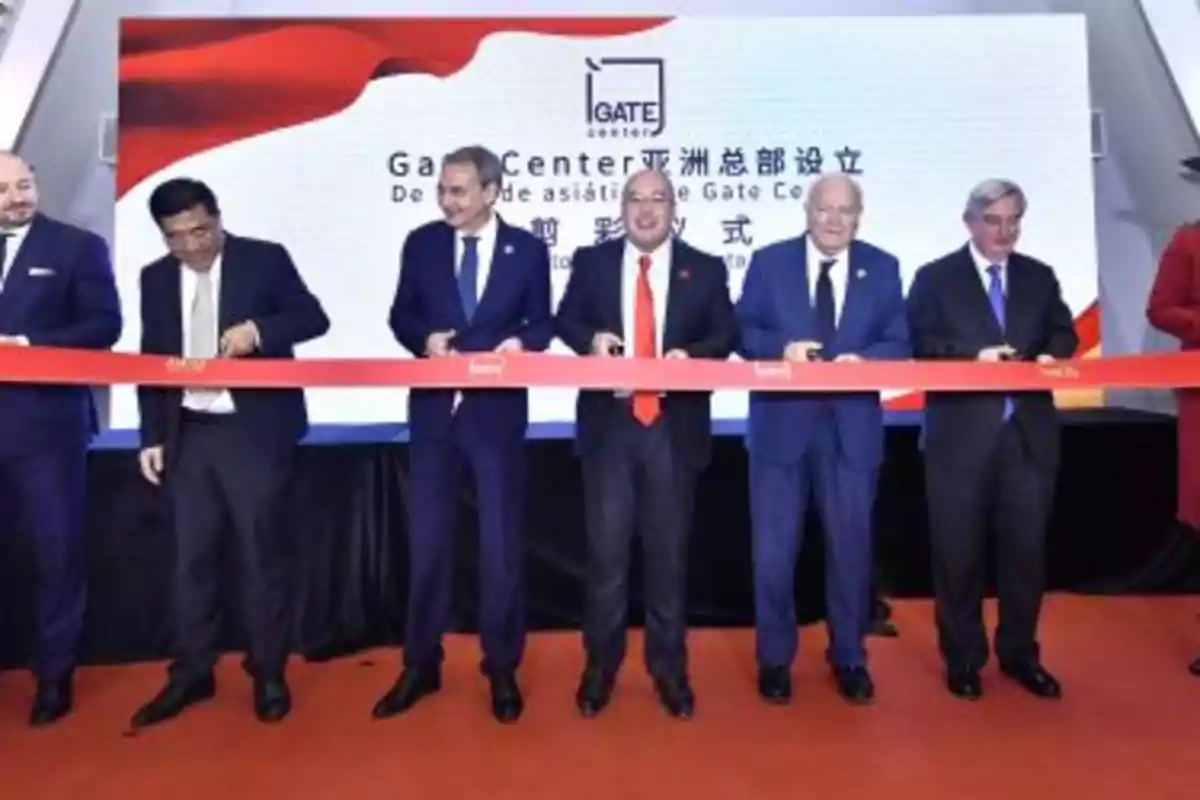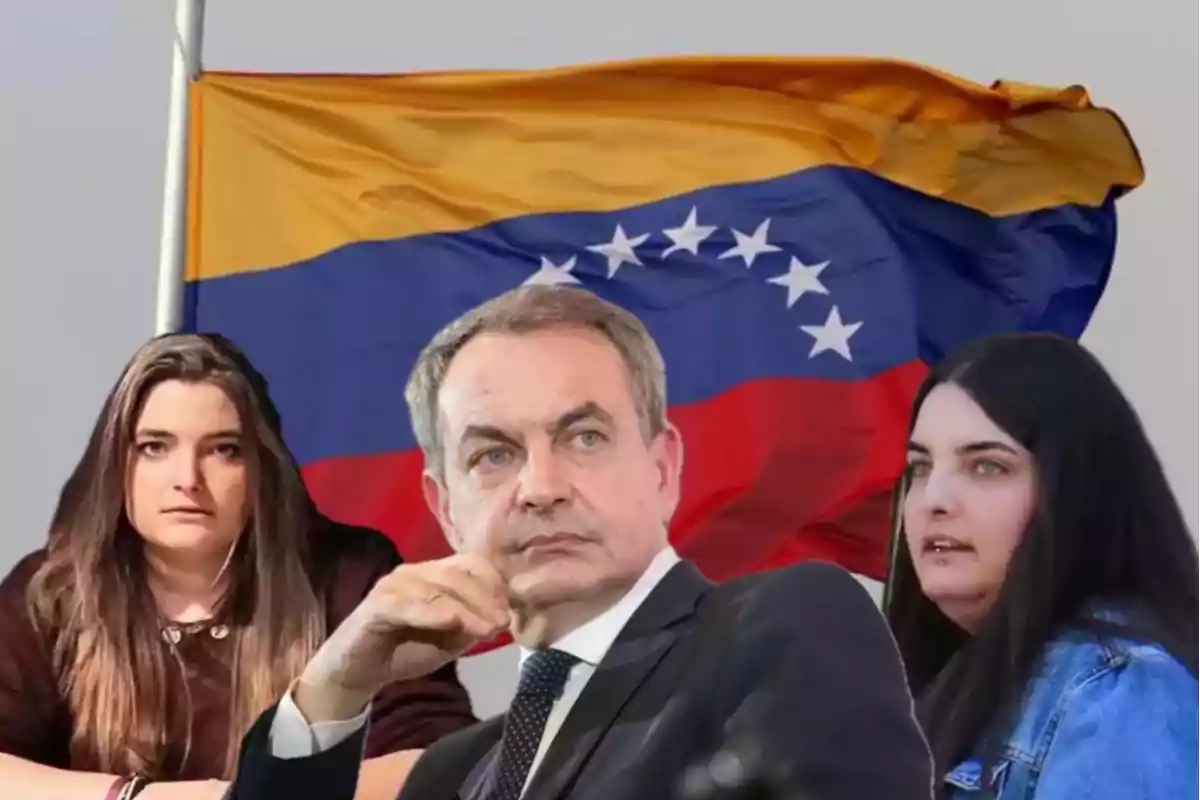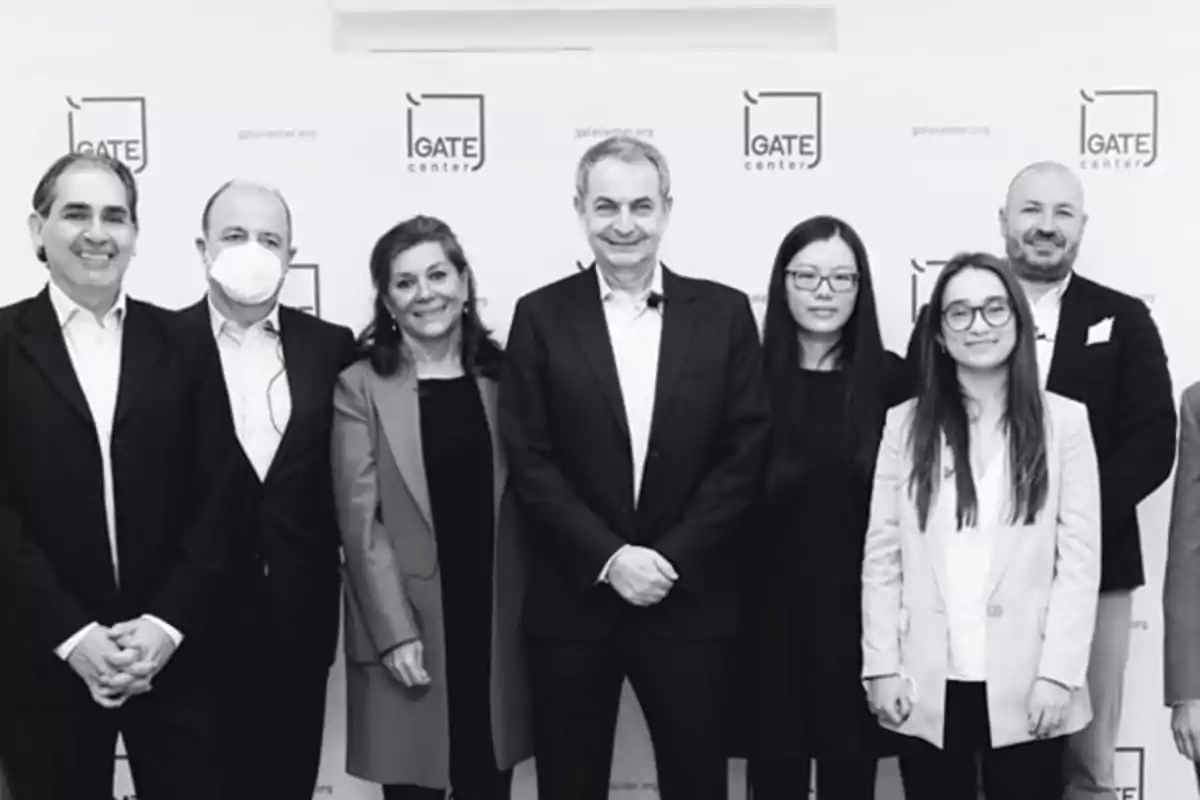
The interests of former President Zapatero abroad: From Venezuela to his role in China
His Gate Center foundation shared headquarters with a firm linked to a Chinese businessman who was being monitored by the CNI for espionage
The former President of the Government José Luis Rodríguez Zapatero has maintained an active presence in the international arena since he left La Moncloa in 2011.
Unlike other former leaders who choose a discreet life, Zapatero has positioned himself as a key figure in mediation processes in Latin America. He has also promoted projects related to geostrategic analysis and international cooperation.
Although not without controversy. Especially due to his closeness to regimes like Nicolás Maduro's in Venezuela or his indirect connection with actors related to the Chinese government's influence apparatus. Influences that are revealed during a period of rapprochement between Sánchez and the Chinese government.
One of the most notable projects of the former president on the international stage is the Gate Center. An organization that presents itself as an independent think tank with the mission of fostering dialogue and cooperation between Europe, Latin America, and Asia.
Founded in April 2022, it is legally registered as the Global Asia Latin America and Europe Center for the Dialogue and Research Foundation. The think tank is described by its promoters as a platform for strategic analysis, the study of global trends, and the promotion of multilateralism.

However, the Gate Center quickly attracted the attention of Spanish intelligence services. The initial headquarters of the center was located in an apartment on Velázquez Street in Madrid. There it shared space with the company Mimo Advisors Europa S.L., led by Fangyong Du, also known as Miguel Duch.
This businessman of Chinese origin has been monitored by the National Intelligence Center (CNI). Specifically, due to his alleged links to economic and political espionage activities for the Beijing government.
Fangyong Du previously worked with Huawei, the Chinese technology company that was banned in several Western countries for national security reasons. Du was involved in efforts to facilitate Huawei's entry into the development of 5G in Spain. Including lobbying maneuvers such as hiring businessman Víctor de Aldama, as reported by The Objective. Aldama acted as a consultant for the Chinese multinational during a period when he maintained a direct relationship with members of Pedro Sánchez's government.

There is no conclusive evidence directly linking Zapatero to these activities. However, the coincidence of locations, contacts, and professional relationships has fueled suspicion that the Gate Center could have served as a platform for ideological or diplomatic influence close to Chinese interests.
Zapatero's daughters also pointed out
Another point that has caused media attention is the professional projection of Zapatero's daughters, Laura and Alba Rodríguez Espinosa. In 2019 they founded the communication agency Whathefav, specializing in digital marketing, social media management, and projects related to e-sports.
What started as a small venture focused on the video game sector has grown over time to become a firm with an international presence. Although not without controversy.
In recent years, Whathefav has provided services to the Gate Center, especially in digital communication and social media consulting. This has raised doubts about the possible use of the former president's political influence to favor his family environment.
But the most striking growth of Whathefav came with its entry into the Venezuelan market. As we reported in elcierredigital.com, in 2023 the agency closed a collaboration agreement with El Server. This is a Venezuelan platform focused on electronic sports.

The alliance occurred shortly after a new visit by José Luis Rodríguez Zapatero to Caracas. There he was received by President Nicolás Maduro and other high-ranking officials of the Bolivarian regime.
That same year, the former president's daughters' company multiplied its turnover. They reached 401,000 euros in revenue, generating net profits of 105,000 euros, figures much higher than in previous years.
Although there is no evidence suggesting irregularities, the sudden growth in an international market like Venezuela —considered high economic and political risk— has been interpreted by some analysts as a possible consequence of their father's positioning as an ally of Chavismo.
Zapatero's other controversies in Venezuela
Since 2016 José Luis Rodríguez Zapatero has acted as a mediator in the Venezuelan conflict. For this reason, he has participated in various dialogue processes between the government of Nicolás Maduro and the opposition.
His role has been praised by some sectors of the international community. However, others accuse him of having acted as a "validator of the Chavista regime". Especially due to his closeness to the government environment and his criticism of the international community when it denounced human rights violations in the country. This has earned him protests within the country on more than one occasion.
On numerous occasions, Zapatero has publicly defended Maduro. He has also questioned reports from organizations like the United Nations and promoted electoral participation as the only way out of the Venezuelan political conflict.
His statements have been harshly criticized by the Venezuelan diaspora. Some consider him an essentialized figure by the government to legitimize the system. Others believe the former president may have hidden interests in Venezuela.
In this regard, the expansion of Whathefav in Venezuela has coincided temporally with some of the former president's most significant visits to Caracas. Something that has raised questions about whether his mediation has been accompanied by an economic background.
China, Venezuela, and Zapatero's global projection
According to some analysts, Zapatero's actions after his time in national politics reveal a shift in focus.
His approach to China, his defense of Maduro's government, and his involvement in platforms like the Gate Center or the São Paulo Forum have made him a controversial figure in the international balances of the Ibero-American left.

In the case of China, his defense of dialogue against the more critical positions of the European Union and the United States has been constant. In forums and interviews, Zapatero has defended international cooperation without exclusions. A stance that has been described by some as alignment with Xi Jinping's regime's discourse.
On the other hand, his role in Venezuela has distanced him from the official positions of La Moncloa. Although Zapatero claims to act in the name of peace and understanding, his critics argue that his presence has been used by the regime to reinforce its international narrative.
More posts: